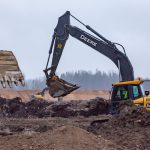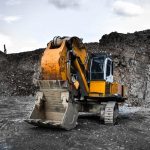Zambia, the world’s seventh-largest copper producer, is ramping up infrastructure and mineral exploration efforts while partnering with international firms to expand its renewable energy sector.
Although its petroleum industry is relatively untapped, emerging developments driven by strategic positioning and promising geology present enticing opportunities for upstream investments.
Regional Exploration Success Highlights Zambian Prospects
Zambia shares geological similarities with neighboring countries that have witnessed significant exploration success, particularly in oil and gas.
These include exploration in the East African Rift Basin – featuring the Lake Albert Rift Basin in Uganda and traversing Tanzania, Mozambique, Kenya and Malawi. The basin is believed to extend into Zambia, showcasing an opportunity for frontier players.
In Uganda, the country’s inaugural oil projects – Kingfisher and Tilenga – are poised to come online in 2025, producing 40,000 barrels per day (bpd) and 190,000 bpd, respectively.
Tanzania has also demonstrated progress in exploration, notably in its Eyasi Wembere Basin along the Eastern branch of the Great Rift Basin, where extensive 2D seismic data acquisition projects have been completed.
With significant investments, the basin is believed to harbor oil and gas resources, drawing parallels to oil-producing basins in Uganda and Kenya.
Zambia’s geological context within the East African Rift system further supports the presence of sedimentary basins with hydrocarbon potential, akin to its neighbors.
Meanwhile, in Zimbabwe, Invictus Energy’s gas discovery in the Mukuyu-2 sidetrack well within the Cabora Bassa basin signifies exploration prospects for Zambia.
This basin, located onshore in the Zambezi Valley, holds potential – estimated at 20 trillion cubic feet of gas and 845 million barrels of conventional gas-condensate.
This discovery not only augurs well for Zimbabwe’s exploration endeavors but also highlights opportunities for neighboring Zambia, which shares the Zambezi with Zimbabwe.
All Signs Point to Upstream Success
Zambia’s historical journey in oil and gas exploration underscores the country’s potential in oil and gas commercialization. Exploration dates back to the 1970s, yet hydrocarbon discoveries were elusive until the early 2000s.
Over the years, Zambia has conducted three licensing rounds to attract private investment, with twelve out of fifty-six blocks under license, six actively explored.
In July 2018, Oranto Petroleum entered Zambia’s oil and gas sector by farming into two onshore exploration blocks – Blocks 17 and 27.
Oranto Petroleum secured a 90% stake in the blocks, with the remaining 10% held by Zambia Consolidated Copper Mines Investment Holdings on behalf of the Zambian Government. The company pledged to conduct geological and geophysical studies during the initial two 2-year sub-periods.
Additionally, Bowleven Oil & Gas holds a 100% interest in three early-stage exploration blocks in Zambia – namely, Blocks 25, 28, and 29.
These blocks are located in the under-explored Luangwa Rift Valley, last explored in the 1980s. The valley features a significant rift basin with regional evidence suggesting the presence of key elements for a petroleum system.
The initial exploration period spans four years, including a minimum committed work program valued at approximately $500,000.
In 2006, the country announced its first oil and gas discoveries in the northwestern provinces of Zambezi and Chavuma, prompting the formation of a special cabinet committee to facilitate exploration.
Though reserve sizes remain undetermined, these discoveries hold potential for revenue generation and economic diversification, albeit with limited progress.
Foreign firms like Tullow Oil have initiated exploration, emphasizing Zambia’s efforts to exploit its oil and gas potential. Zambia does not currently produce oil; however, the government stated that soil samples sent to European laboratories have revealed promising indications of crude oil, showcasing lucrative opportunities for frontier E&P companies.















